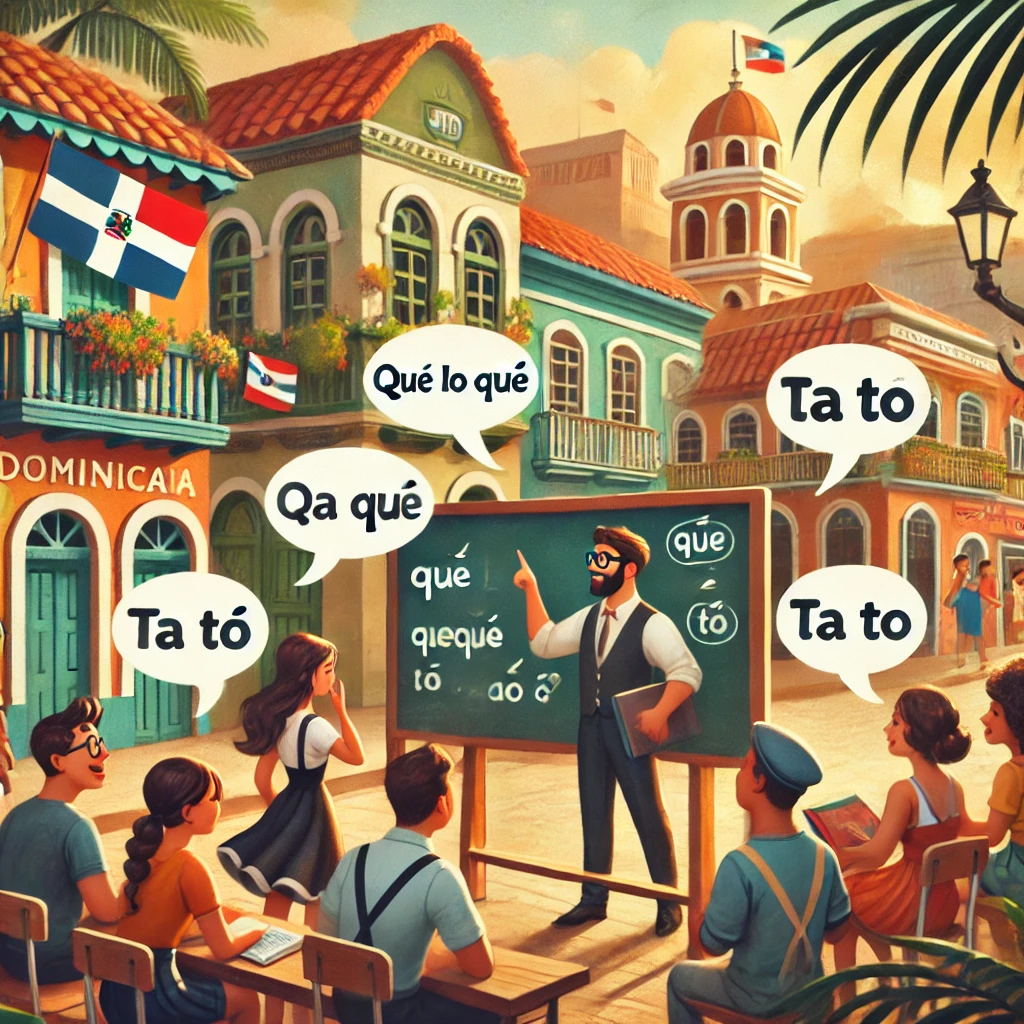When it comes to learning Spanish, there’s something special about immersing yourself in a specific dialect. The Spanish spoken in the Dominican Republic, often called “Dominican Spanish,” is incredibly vibrant, dynamic, and full of charisma. What truly sets it apart are its quirky and colorful colloquial expressions, which reflect the warmth and creativity of Dominican culture.
If you’re a foreigner interested in learning Spanish with a Dominican twist, you’re in for a treat! This article will introduce you to some of the most common Dominican expressions and uncover what they mean. By the end, you’ll not only have expanded your vocabulary but also gained insight into the exciting world of Dominican culture.
Why Learn Dominican Spanish?
Before jumping into the expressions, let’s take a moment to answer this: Why should you learn Dominican Spanish?
- Immerse in Dominican Culture: Language is a gateway to culture. By understanding Dominican colloquial expressions, you’ll be able to connect more deeply with Dominican people and traditions.
- Stand Out While Traveling: If you plan to visit the Dominican Republic, using local phrases will help you bond with locals and make your experience more authentic.
- It’s Fun! Dominican Spanish has a playful and musical quality to it. Learning it brings joy to the process of mastering Spanish overall.
Now, let’s explore some key expressions that will make you sound like a native and deepen your understanding of Dominican Spanish.
Common Dominican Expressions
- “Qué lo qué”
Translation: What’s up? / How’s it going?
This phrase is probably the most iconic greeting in Dominican Spanish. Instead of using the standard “¿Qué tal?” or “¿Cómo estás?”, Dominicans say “Qué lo qué” to casually ask how someone is doing.
Example:
- A: “Qué lo qué, mi hermano!”
- B: “Tranquilo, todo bien.”
When you visit the Dominican Republic, you’ll hear this everywhere. Try using it yourself—you’re guaranteed to get a big smile from any local!
Translation: Cool / Awesome
“Jevi” is a versatile word used by Dominicans to express that something is great or enjoyable. Whether it’s a good party, a fun movie, or a stylish outfit, “jevi” is your go-to adjective.
Example:
- “Esa música está jevi. Ponla otra vez.” (That music is cool. Play it again.)
- “En olla”
Translation: Broke / Out of money
This humorous expression literally means “in the pot,” but its actual meaning is financial hardship. Dominicans use it lightheartedly when they’re running low on cash.
Example:
- “Este mes estoy en olla. No puedo salir.” (This month I’m broke. I can’t go out.)
- “Tato”
Translation: It’s all good / Don’t worry about it
“Tato” is short for “está todo” (“it’s all okay”). It’s used to indicate everything is fine or that no problem exists. Perfect for casual conversations.
Example:
- A: “Lo siento por llegar tarde.”
- B: “No te preocupes, tato.” (Don’t worry, it’s all good.)
- “Dar carpeta”
Translation: To be annoying or stubborn
If someone is insistent or causing unnecessary trouble, a Dominican might say they’re “dando carpeta.”
Example:
- “Ya deja de dar carpeta con ese tema.” (Stop being annoying about that topic.)
- “Montado en el palo”
Translation: To be doing great / Be successful
Dominicans love imagery in their expressions, and this one translates to “mounted on the stick.” It’s used to highlight someone’s success or being on top of their game.
Example:
- “Después de su nuevo negocio, ese tipo está montado en el palo.” (After starting his new business, that guy is doing great.)
Tips for Learning Dominican Spanish
Learning these expressions is the fun part, but here’s how you can make the most of your Dominican Spanish learning experience:
- Immerse Yourself in Media:
Listen to Dominican music like merengue and bachata or watch Dominican films to hear these expressions in action. Popular artists like Juan Luis Guerra or Romeo Santos incorporate everyday language in their lyrics.
- Practice with Locals:
Make new friends from the Dominican Republic or attend local events. Speaking with native speakers is the fastest way to internalize phrases like “Qué lo qué” or “Jevi.”
- Use Flashcards:
Create flashcards with these expressions and their meanings for quick memorization. Apps like Quizlet are great for this.
- Stay Patient and Enjoy:
Every learner makes mistakes, and that’s okay! Dominicans are known for their humor and patience, so they’ll appreciate your efforts to learn their style of Spanish.
Our Final Words
Dominican Spanish is so much more than just words—it’s a reflection of the vibrant, expressive, and warm heart of Dominican culture. By incorporating these colloquial expressions into your vocabulary, you’ll not only enrich your Spanish skills but also show your respect and love for one of the Caribbean’s most colorful cultures.
If you’re excited to continue exploring the beauty of Dominican Spanish, we’ve got you covered. Subscribe to our newsletter for more tips, language hacks, and cultural nuggets from the Dominican Republic.
Now, tell us… what’s your favorite Dominican expression? Drop it in the comments below!





